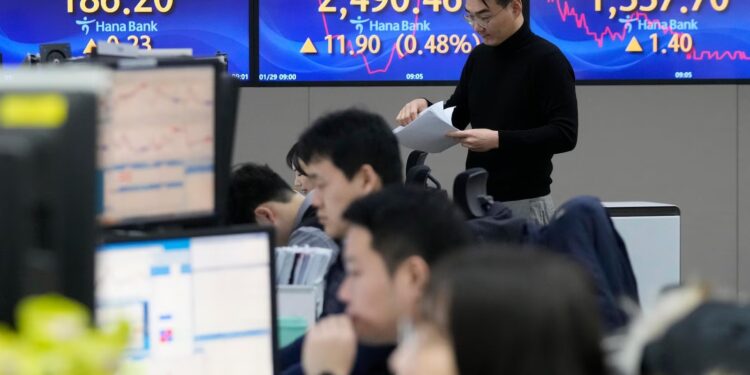Asian markets opened sharply lower on Friday following Israel’s military strikes on Iran’s nuclear facilities. Investors moved quickly to safer assets amid heightened geopolitical tensions. Oil prices surged, pushing energy stocks higher, while equity indexes declined across the region.
Japan’s Nikkei 225 fell around 1.5%, weighed down by declines in industrial and technology shares. Hong Kong’s Hang Seng dropped 2.3%, with major tech and financial firms leading losses. India’s Sensex opened nearly 1,300 points lower, reflecting investor caution amid concerns about potential supply disruptions and conflict escalation.
Looking ahead, European markets are expected to follow Asia’s lead with lower openings. The FTSE 100, DAX, and CAC 40 may face volatility as traders assess the impact of rising oil prices and geopolitical uncertainty. Energy stocks in particular could see increased activity as supply fears linger.
In the United States, futures on the S&P 500 and Dow Jones indicate a negative start. Investors appear cautious about the broader consequences of the Israel-Iran conflict, especially regarding oil prices and potential economic ripple effects. Volatility is likely to remain elevated until the situation stabilises.
Key factors to watch include further developments in the Middle East and their effect on global energy supplies. Economic data released this week, such as inflation reports and employment figures, will also influence market sentiment amid the turmoil.
For now, investors are advised to prepare for heightened market swings and consider risk management strategies as uncertainty prevails across global markets.
newshub finance



Recent Comments